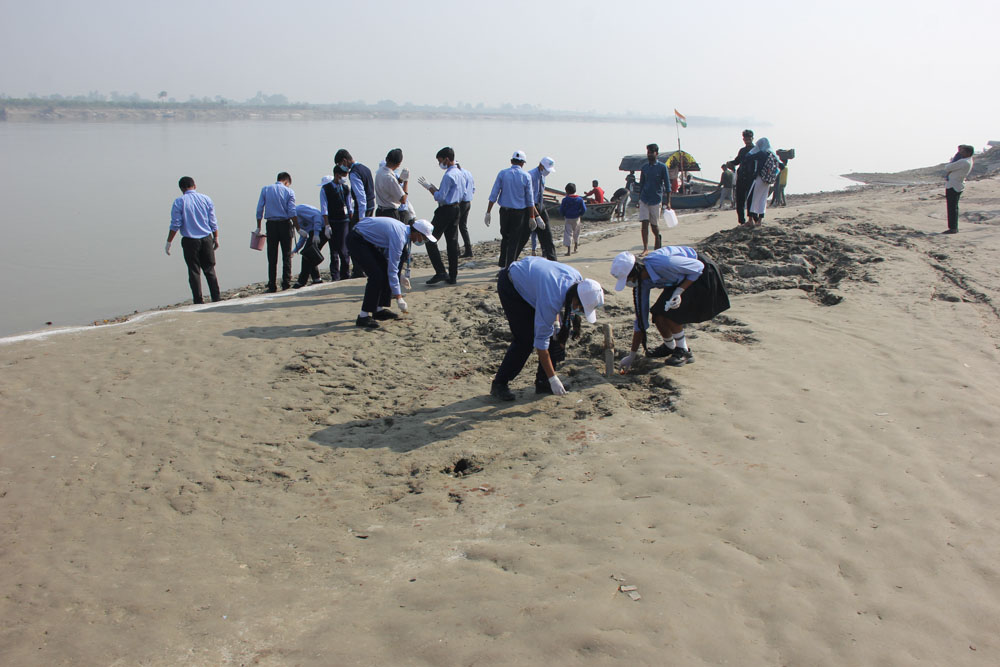Communication planning, awareness campaigns, and product development for the Cities Combatting Plastic entering Marine Environment (CCP-ME)

The plastic industry has profoundly impacted our world, enhancing living standards, hygiene, and nutrition, especially in developing nations. Rapid urbanization, a growing middle class, and industrialization have fuelled plastic consumption across various sectors like automotive, construction, electronics, healthcare, and textiles. However, the environmental challenge is significant, as plastic does not naturally decompose.
In 2016, the world generated 335 million tonnes of plastic waste, with India alone contributing 242 million tonnes. These plastics enter the environment through various means, leading to alarming ocean pollution. India faces a per capita plastic waste generation rate of approximately 11 kg per year, equivalent to 10% of what developed countries like the US produce, posing an environmental crisis risk.
To address this, India introduced Plastic Waste Management (PWM) Rules in 2016, with a 2018 amendment to phase out non-recyclable multi-layered plastics. Despite comprehensive legislation, implementing Extended Producer Responsibility (EPR) and supporting urban local bodies (ULBs) remain challenging.
The government has initiated awareness programs like the Coastal Clean Sea Campaign, Blue Flag Certification, and Swachh Bharat Mission to combat ocean-bound plastic waste. However, marine-based plastic pollution lacks specific legislation.
Recognizing plastic's integral role in daily life, the focus must shift to improving the plastic waste supply chain, including source segregation, efficient collection, recycling, or co-processing. Mass awareness and citizen involvement are crucial for proper disposal.
Cities Combatting Plastic Entering the Marine Environment (CCP-ME) is an initiative of TERI, started in the year 2021. It aims to stop pollution caused by plastic in the marine ecosystem by following a multi-prong approach. It not only prevents generation of plastic waste at the source but also creates awareness about the plastic waste management practices. It targets all the contributors in the plastic value chain and tries to bring about the behavioural change through strategic communication strategies. The project is sponsored by Deutsche Gesellschaft für Internationale Zusammenarbeit (GIZ) GmbH and is being implemented in partnership with the Ministry of Housing and Urban Affairs (MoHUA), Government of India on behalf of the German Federal Ministry of Environment, Nature Conservation and Nuclear Safety.
Strategic Communication for Sustainability area of TERI, as a partner in this project, is working towards preventing plastic waste at its source in cities like Kochi, Kanpur, and Port Blair. Their efforts include developing effective communication strategies for sustainable waste management practices in cities by improving collection, segregation, and marketing of plastic waste; designing public engagement campaigns to prevent plastic disposal in water bodies, creating communication products to disseminate the information through various platforms to prevent plastic disposal to water bodies; improve the handling of port and marine waste; designing knowledge products (digital and printed) to sensitize all contributors in plastic pollution value chain.

